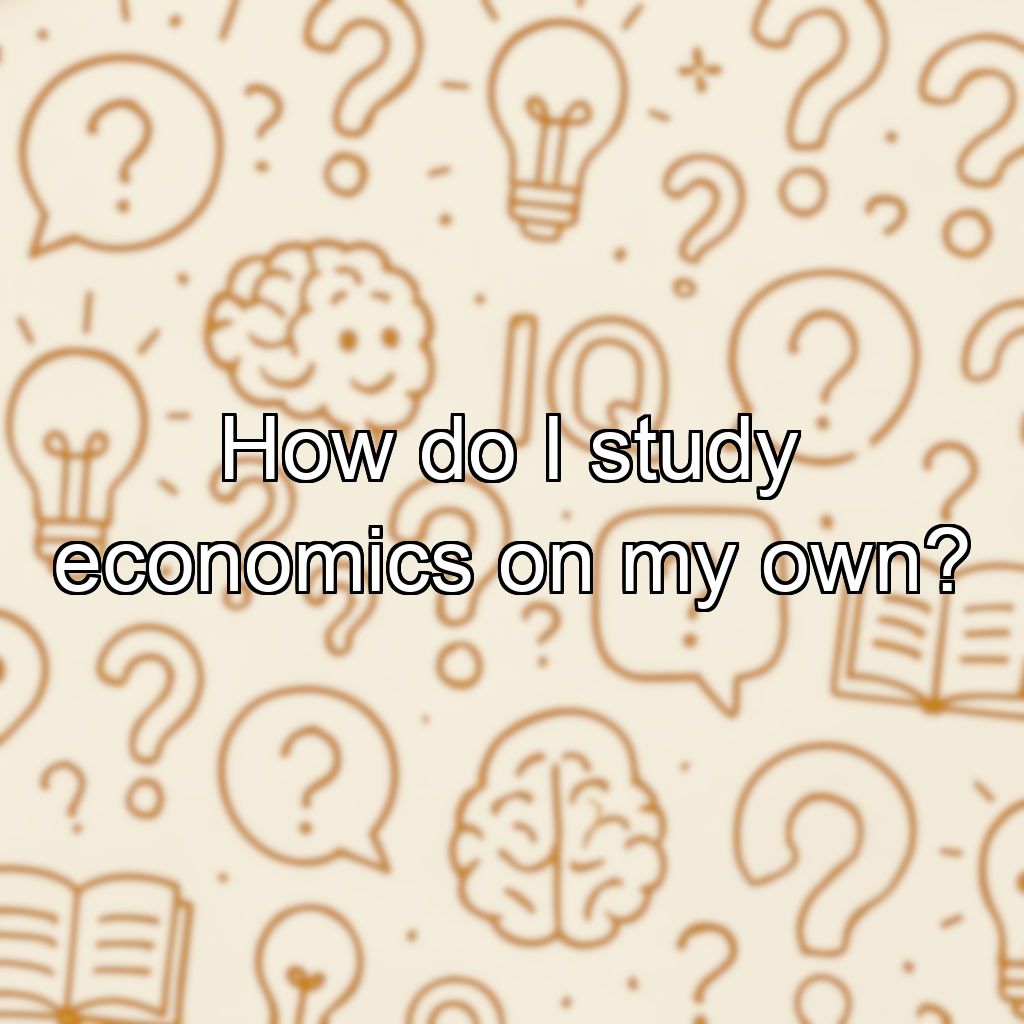How do I study economics on my own?

How to Study Economics on Your Own
Introduction
Studying economics independently can be a rewarding endeavor, allowing you to understand how individual choices, markets, and economies function. Here's a comprehensive guide to help you get started and succeed in self-study economics.
Step 1: Set Clear Goals
- Determine whether you want a broad overview or in-depth expertise in specific areas like microeconomics, macroeconomics, or econometrics.
- Identify your purpose: academic, professional, or personal interest.
Step 2: Gather Quality Resources
- Textbooks: Start with introductory textbooks such as "Principles of Economics" by N. Gregory Mankiw or "Economics" by Paul Krugman and Robin Wells.
- Online Courses: Platforms like Coursera, edX, and Khan Academy offer free and paid courses.
- Academic Papers and Journals: Access research articles for advanced topics through JSTOR or Google Scholar.
- Economics Blogs and Podcasts: Follow reputable sources like Marginal Revolution, Freakonomics, and EconTalk for current discussions and insights.
Step 3: Develop a Study Plan
- Create a schedule balancing reading, note-taking, and practice problems.
- Focus on understanding core concepts before moving to complex topics.
- Review and revise regularly to reinforce learning.
Step 4: Practice Critical Thinking and Application
- Solve exercises and case studies to apply theories.
- Participate in online forums, discussion groups, or study communities like Reddit's r/Economics.
- Analyze current economic news and try to interpret policies and market behaviors.
Step 5: Supplement Learning with Real-World Data
- Explore datasets from sources like the World Bank, IMF, or Federal Reserve.
- Use statistical tools and software like Excel, R, or Stata to analyze data.
Step 6: Stay Curious and Updated
- Follow economic developments and new research.
- Attend webinars, lectures, or local seminars if possible.
Conclusion
Self-studying economics requires discipline, curiosity, and consistent effort. By leveraging quality resources, actively practicing, and engaging with the economic community, you can develop a solid understanding of economic principles and their applications.